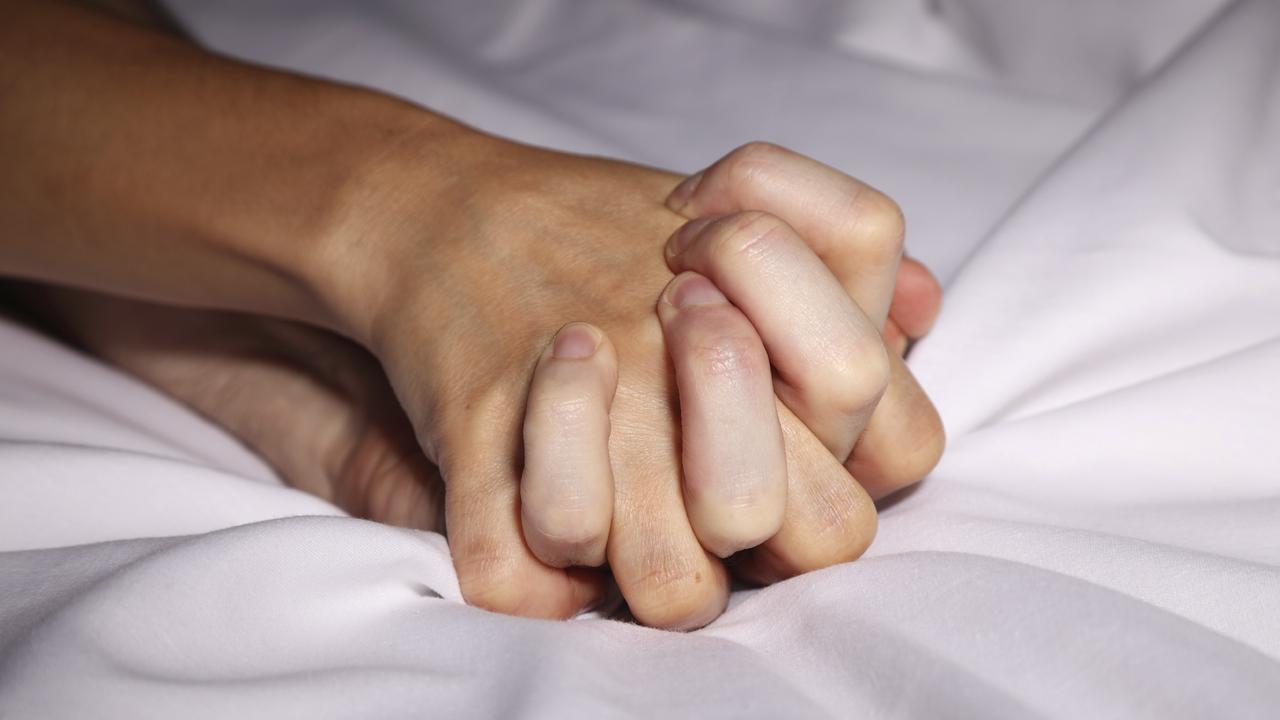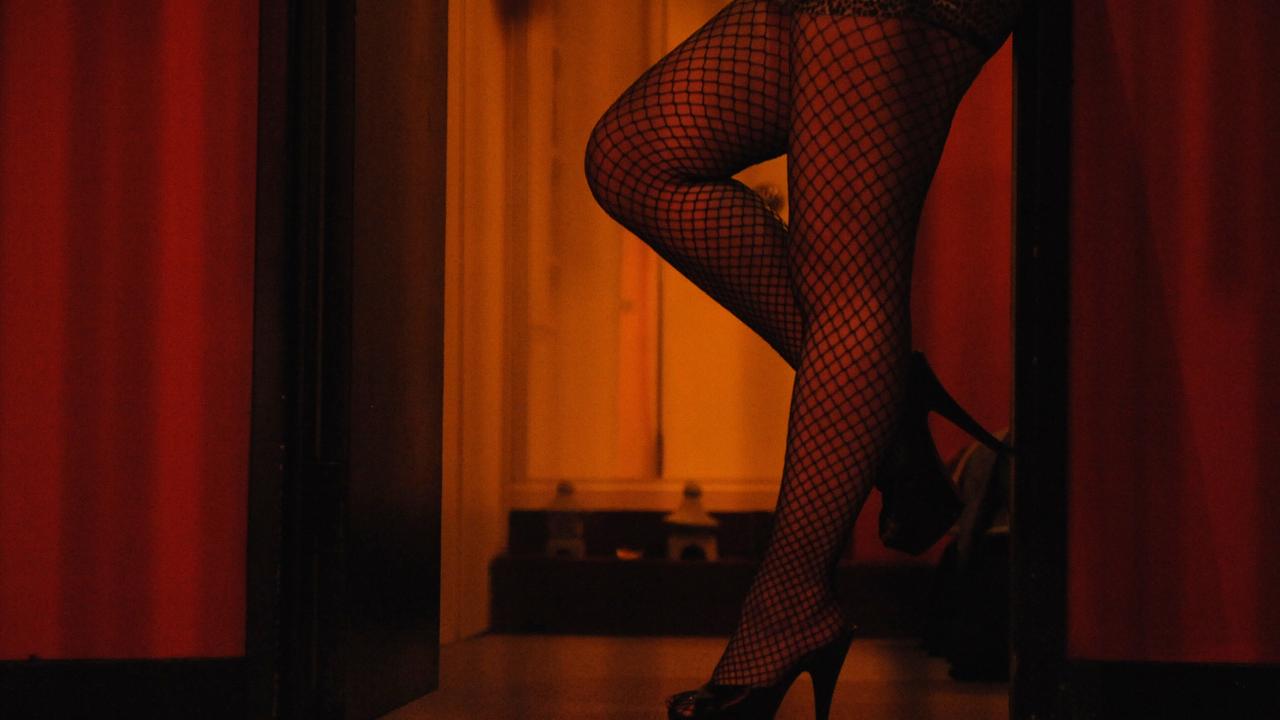Coronavirus: Australian advice issued on casual sex and COVID-19
New guidelines have been issued about how to have casual sex, with one option being not to touch or to avoid face-to-face positions.
Sexual health clinicians are being encouraged to tell their patients to consider having encounters that don’t involve touching, to avoid kissing and to look to slip into the conversation the need for the COVIDSafe app before intercourse to reduce the risk of catching coronavirus.
People could also look to keep sex, short, sharp and sweet as the more you linger the more likelihood there is of catching COVID.
The advice comes in a memo to health workers from Australia’s peak organisation for health professionals working in the area of sexually transmissible infections and blood borne viruses.
“As social distancing restrictions ease it is likely that an increase in casual sex will occur,” states the paper from the Australasian Society for HIV, Viral Hepatitis and Sexual Health Medicine (ASHM).
RELATED: Follow the latest coronavirus updates
Throughout the pandemic, people have been encouraged to social distance. But governments have struggled to give consistent advice to people having sex with partners outside their home.
A ban in late March by the Victorian Government that prevented couples who live apart from seeing one another was overturned within 48 hours following an outcry. So-called “bonk ban” weren’t tried in any other state or territory.
Even with restrictions being lifted across Australia, and people streaming into parks, pubs and public transport, social distancing is still being advised.
But Dr Edwina Wright, who chairs ASHM’s task force on blood borne viruses, sexual health and COVID-19, told news.com.au that demanding people simply not to have sex was a nonstarter.
“Human beings are human beings, it’s as simple as that. Do we really believe if we tell people to stop having sex, they will just stop doing it?”

She said that during the height of the pandemic patients presenting at sexual health clinic dropped dramatically. But diagnoses of STIs were still happening which meant people were still getting busy.
“As doctors, we know its human nature to need sex and need it for reasons that are not just gratification but for company, intimacy and feeling validated,” Dr Edwina Wright said.
“That doesn’t go away because of a pandemic, so it’s important to support and offer guidance.”
‘AVOID KISSING, FACE TO FACE CONTACT’
The ASHM advice notes that SARS-CoV-2, the virus that causes COVID-19, can be transmitted through bodily fluids such as saliva and semen but there have been no recorded infections through intercourse.
Nonetheless, “clinicians should educate all patients … that the close contact that occurs during sex is a key risk factor for infection”.
The main guidance is straightforward: wash your hands, practice general social distancing and don’t hook up if unwell.
However, the memo goes into lots more detail for those who want to have casual sex as the pandemic plays out.
One is to consider have no physical contact whatsoever.
“Have an encounter that does not involve touching,” is one tip, or have “online encounters” via webcams, apps and texting.
But most people will likely want to get physical. If that’s the case, consider washing or showering beforehand and engaging in “short encounters”.
Given the main transmission method for COVID-19 is through exhaled droplets, the new normal sex advice is to say no to snogging.
“Avoid kissing, saliva exchange, face touching … and positions which involved face-to-face contact.
“Have sex that reduces the amount of contact with bodily secretions, use condoms and dental dams to reduce contact with saliva, semen, vaginal secretions etc,” the ASHM task force memo advised.
Objects shouldn’t be shared that may have bodily fluids on them while sex toys and other surfaces should be cleaned frequently. Wash sheets after sex to give the virus, if it’s there at all, the flick.

If it’s feasible, people should look to limit the number of sexual partners they have, avoid group sex and consider limiting sex to a “small, trusted network”.
People should also chat to their dates about apps – not Tinder or Grindr – but COVIDSafe which will be useful if someone tests positive later.
“Discuss the merits of ensuring that each partner has the other’s contact details and understands they should be notified in the case of a positive COVID-19 test result.”
Patients should also be reminded that STIs haven’t taken a siesta because coronavirus has made a big splash. Those taking a break from medication to prevent HIV infection, for instance, should continue to take it if they feel there is a chance, they might have casual sex.
HEALTH WORKERS TOLD NOT TO JUDGE
One of the main pieces of advice is not for those hooking up, however, but for the clinicians meeting with them. They shouldn’t be tempted to tut-tut at clients who have had sex during lockdown.
It urges them to be “non-judgemental” and to “be aware that patients may be reluctant to disclose that they have been having casual sex while social distancing restrictions are in place and may be afraid of being prosecuted or discriminated”.
“We’re doctors and clinicians not police. We’re not enforcers, we’re here to support patients,” said Dr Wright.
“We have to deal with what’s in front of us and help them as much as possible to not acquire not just COVID-19 but also other viruses.”

One group that has been particularly hard hit by coronavirus has been sex workers. The industry shut down in March and, in many states, there is still no date for when it can crank up again.
Sex work, brothels and strip clubs, were left out of the federal government’s four step plan for easing restrictions.
Last month, sex workers told news.com.au that while kissing and oral sex might be off the menu, the industry could be trusted to take steps to minimise the risk of infection.
“Sex workers have a great track record in relation to public health in Australia, demonstrated through many years of low rates of blood borne viruses and sexually transmitted infections and high rates of testing,” Jules Kim, the chief executive officer of the Scarlet Alliance, the Australian sex workers’ association, said.
New South Wales has announced brothels can reopen from July 1. Indeed, the state has deemed sex work to be safer than another activity which there is still no start date for – going out to a nightclub.




